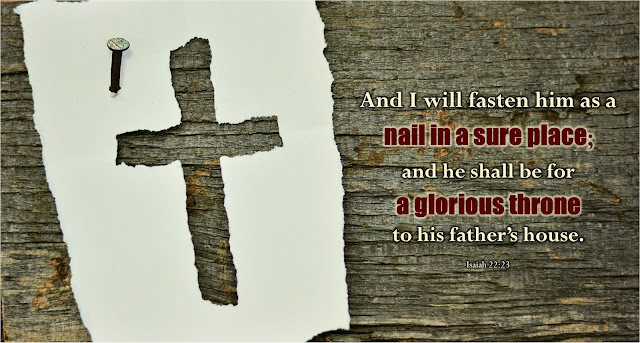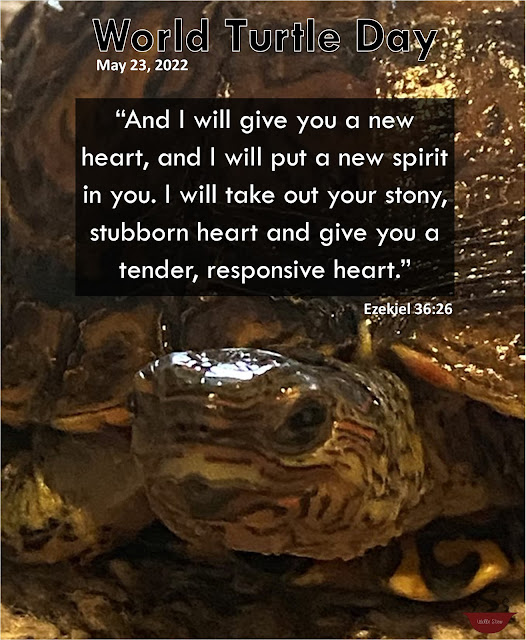Isaiah: Chapter 22 | The Wolfe Notes
Welcome, Family! We're spending 2024 with the prophet Isaiah. While we claim no expertise, we're excited to sit with you as we both learn at the feet of Jesus. Each month, we offer a calendar that outlines daily exercises (adapted from Jenn Wilkin's Women of the Word Bible study process) to progress through Isaiah. Download April's calendar to begin with us and witness what we uncovered in our weekly "Wolfe Note" postings.
Contents:
- Different Versions Noting and clarifying differences between NASB & NOG.
- Annotation An outline of my thoughts, connections, clarifications, and questions.
- Research Shebna and Eliakim.
- Summary An approximately twenty word overview of the chapter.
- Memorize Why I chose to memorize Isaiah 22:23.
- Cross References Of Isaiah 22:23
- Respond Based on reflections on God's character and my own.
Different Versions
- "And He removed the defense of Judah" NASB v. "On that day Yahweh will remove the defenses of Judah" NOG. Verse 8. *But KJV says "and he discovered the covering of Judah". Both NASB and NOG assume God is removing Judah's defense, but KJV offers that it was discovered and doesn't distinguish "he" as God. So, based on the KJV, it could be interpreted that the assailant discovered and removed the offence. In Hebrew, galah, means to uncover, remove, reveal. Bible Hub commentators Ellicott, Pulpit, and Benson concur that God removed the defense laying them bare to their enemies. Although, Cambridge, Barnes, and Gill say it could be either.
- "Certainly this wrongdoing will not be forgiven you until you die" NASB v. "Certainly this wrongdoing will not be forgiven even when you die." NOG. Verse 14. *And KJV, "Surely this iniquity shall not be purged from you till ye die." Each version offers a different feeling. The NASB & KJV suggests at death but the suggests NOG not even after death. But the KJV, with purged instead of forgiven, guides me to see the wrongdoing more of a plague on humanity, of sorts. Essentially saying pride is something you'll have to grapple with as long as you're human. While the other two, make it sound like God is unforgiving because of their wrongdoing. Verses on unforgiveness. In Hebrew, kaphar, means appease, to cover over, to make propitiation. Bible Hub commentators agree, if people's response is a call to repentance is drunkenness and revelry, then it is highly unlikely these people will ever repent.
- "He shall grip you firmly." NASB v. "He will grab you." NOG Verse 17. And KJV, "and will surely cover thee." *The NASB and NOG feel more forceful and the KJV almost protective. Perhaps the NASB and NOG interpret the feelings God must be having and the KJV hints at God needing to remove Shebna to protect his people. Either way, Shebna's leaving, forcefully, and by God's hand. In Hebrew, atah, self, to wrap oneself, enwrap, envelop oneself. Often translated cover, veils, worn. Interestingly the next word is the same. *So to wrap oneself in oneself. Sounds like pride to me! It could be saying your pride is your downfall. Which certainly fits. Pulpit translates: he will make you obscure.
- "the peg...will give way" NASB v. "the peg...will be removed." NOG. Verse 25. *Give way implies the weight it carries is too much, whereas "be removed" suggests it was someone's doing - perhaps God's.
Annotation
- Israel Behaves Insensitively (Verses 1-3)
- People in the valley of vision go to their rooftops.
- What is the valley of vision? Jerusalem for it lies in a valley. Although possibly Samaria (Ellicott). Vision because it was the seat of divine revelation. (Benson)
- Why do they go to their rooftops? Isaiah seems to think it's erratic behavior.
- Isaiah wonders why.
- Their captivity happened peacefully and they are all together.
- God Responds with Weeping (Verses 4-8)
- God weeps for His people are destroyed.
- Why is God confused that they are on their rooftops but asks that they allow Him to weep? Were rooftops used for rejoicing?
- A terrible day is coming for them.
- Their enemies prepare for battle.
- Who are Elam and Kir?
- Their city will be full of them.
- God will withhold His protection.
- Israel Relies on its Own Strength (Verses 9-13)
- Seeing that they are overrun, they take defensive measures.
- Why collect water when the city is breached? Why a reservoir? For survivability?
- Israel doesn't consider God's part in what is happening.
- God calls for repentance.
- Israel instead toasts to their impending death.
- ! Prepare the table (Isaiah 21:5).
- Why would they party? Is this their way of saying they would rather die without God than live for Him?
- God Responds with Action (Verses 14-25)
- God says Israel will not be forgiven as long as they live.
- ! Verse 14 has me singing "Here with Me" by Mercy Me: "Will you show me? Reveal yourself to me. Because of your mercy I fall down on my knees" because Isaiah said "the Lord of armies revealed himself to me."
- Isaiah is sent to Shebna, the person in charge of Israel to challenge his assumption that this is his eternal resting place.
- *We would rather accept death as the end than believe in God whose name is written on everything, whose breath is in our lungs, and who promises us eternal life.
- But God is about to permanently displace Shebna because of how he shames Jerusalem.
- Why? What did Shebna do to shame Jerusalem? Did he misguide them? Is he the reason they are vainly living instead of repenting and worshiping God? Pulpit points us back to verse 16, Shebna's sole goal was to attract attention and become famous.
- Shebna will lose his authority and be replaced by God's servant.
- Is the servant Jesus? Isaiah 42 certainly suggests so.
- God's servant will be dressed in Shebna's clothes and be given Shebna's authority, which will make God's servant the father of Jerusalem.
- What is the significance of dressing Eliakim in Shebna's tunic and sash? It reminds me of a sermon series I heard on the prodigal son. The gifts the son receives from his father (think God the Father) are the robe of righteousness, the ring of authority, and the shoes of sonship. (Watch "The Robe", "The Shoes", and "A Godly W.A.L.K.".)
- God will give His servant ultimate, unshakeable power and God's servant will bring God glory.
- What was it that was on Jesus' shoulder again? "The government shall be upon His shoulder." Isaiah 9:6-7
- All the hope of God's children will rest on God's servant.
- ! The "vessels" of cups and flagons in this scripture (Isaiah 22:24) remind me of 2 Corinthians 4:7 KJV: "But we have this treasure in earthen vessels [some translations say "jars of clay"], that the excellency of the power may be of God, and not of us.". *Perhaps reemphasizing that we hang on Jesus knowing the power is not of our own accord.
- But, God's servant will fall away as will everyone who hung their hope on Eliakim.
- *The falling away here, I believe, is the crucifixion.
Research
Who are Shebna and Eliakim?
Shebna
- Served as steward/treasurer/prefect under King Hezekiah. He was the second in command like Joseph was to Pharoah - see Genesis 41:40. (Gabbe)
- He became a scribe after his removal - see II Kings 18:18-37, II Kings 19:2, Isaiah 36:3-22, and Isaiah 37:2 (Gabbe)
- He was ostentatious and presumptuous. He was not king, but was carving himself a burial place among the kings. He was taking for himself greater honor than had been bestowed, *which contradicts the teaching of Jesus when choosing a room at a wedding - see Luke 14:7-14. (Gabbe)
- He cared more about his glory than caring for the country that was crumbling down around him. (Gabbe)
Eliakim
- Eliakim means "whom God will raise up" or "the resurrection of God" both clearly mean Jesus. (Gabbe)
- Eliakim, historically, replaced Shebna as steward under King Hezekiah. He was the second in power in Israel as Joseph was the second in power in Egypt. Compare:
- Regarding Eliakim Isaiah 22:21 KJV: And I [God] will clothe him with thy [Shebna's] robe, and strengthen him with thy girdle, and I will commit thy [Shebna's] government into his hand: and he shall be a father to the inhabitants of Jerusalem, and to the house of Judah.
- Regarding Joseph Genesis 45:8 KJV: So now it was not you that sent me hither, but God: and he hath made me a father to Pharaoh, and lord of all his house, and a ruler throughout all the land of Egypt. (Gabbe)
- Spiritually, Eliakim represents Jesus.
- Jesus quotes Isaiah 22:22 in the letter to the church of Philadelphia found in Revelation 3:7 indicating that Jesus holds the key and also linking Him to Eliakim:
- Isaiah 22:22 KJV: And the key of the house of David will I lay upon his shoulder; so he shall open, and none shall shut; and he shall shut, and none shall open.
- Revelation 3:7 KJV And to the angel of the church in Philadelphia write; These things saith he that is holy, he that is true, he that hath the key of David, he that openeth, and no man shutteth; and shutteth, and no man openeth. (Gabbe)
- The Messianic Prophecy in Isaiah 9:6-7 tells us the government will be on Jesus' shoulder. So, the "key of the house of David" represents authority given by God to Jesus and every other person who sits on the throne. The royal throne is the throne of the Lord because God decides who sits there - see I Chronicles 29:23 - and God swore that David would always have an heir on the throne - see Jeremiah 33:17. (Gabbe)
- While Eliakim was a "secure peg" that brought his father glory, Jesus even more so. For Jesus does not merely support, but He is "upholding all things by the word of his power, when he had by himself purged our sins, sat down on the right hand of the Majesty on high" Hebrews 1:3 (Gabbe) *It interests me that "purged" is used here as well as in Isaiah 22:14: And it was revealed in mine ears by the Lord of hosts, Surely this iniquity shall not be purged from you till ye die, saith the Lord God of hosts." When combined with this verse, it helps us see "die" in a whole new light. Indeed, we won't be 'purged from our sins' until we 'die' with Christ."
Summary
Memorize
And I will fasten him as a nail in a sure place; and he shall be for a glorious throne to his father's house.
Oh! To believe these words could be spoken of me. How I'd like to be securely positioned where I'm needed. How I'd like to be called a glorious throne to my Father. Work in me, Lord. Create in me a clean heart to bring You glory. I lay my pride, my desires, my ambition at your feet. I trade it all to glorify You. Fasten me in Your sure place. Keep my feet planted in Your soil.
Cross References
Of Isaiah 22:23:
And I will fasten him as a nail in a sure place;...
- Ezra 9:8 KJV: And now for a little space grace hath been shewed from the Lord our God, to leave us a remnant to escape, and to give us a nail in his holy place, that our God may lighten our eyes, and give us a little reviving in our bondage.
- Ecclesiastes 12:11 KJV: The words of the wise are as goads [spurs], and as nails fastened by the masters of assemblies, which are given from one shepherd. *Connect to John 10:11 NOG: "I [Jesus] am the good shepherd. The good shepherd gives his life for the sheep."
- Zechariah 10:4 KJV: Out of [Judah] came forth the corner [cornerstone], out of him the nail, out of him the battle bow, out of him every oppressor [ruler] together. *Connect to Ephesians 2:20 KJV: "And are build upon the foundation of the apostles and prophets [*masters of assemblies!^], Jesus Christ himself being the chief corner stone;
...and he shall be for a glorious throne to his father's house.
- I Samuel 2:8 KJV: He rasieth up the poor out of the dust, and lifteth up the beggar from the dunghill, to set them among princes, and to make them inherit the throne of glory: for the pillars of the earth are the Lord's, and he hath set the world upon them. *Connect to Isaiah 61:3 KJV: To appoint unto them that mourn in Zion, to give unto them beauty for ashes, the oil of joy for mourning, the garment of praise for the spirit of heaviness; that they might be called trees of righteousness, the planting of the Lord, that he might be glorified.
- Job 36:7 KJV: He withdraweth not his eyes from the righteous: but with kings are they on the throne; yea, he doth establish them for ever, and they are exalted.
- Esther 4:14 KJV: For if thou altogether holdest thy peace at this time, then shall there enlargement and deliverance arise to the Jews from another place; but thou and thy father's house shall be destroyed: and who knoweth whether thou art come to the kingdom for such a time as this?
Respond
- God expects us to respond to unrighteousness. Like the Israelites, I am apathetic in witnessing unrighteousness when I am safe. I don't see the situation from God's eyes. When God is weeping, I, in my ignorance and selfishness, too, am sometimes found celebrating. I can pray that God breaks my heart for what breaks his. (Isaiah 22:4, 12)
- God wants us to turn to him first and fully for deliverance. When I try my own way, it fails - even if it seems to succeed for a time. I can seek Him first and only Him in all things, no matter how small and no matter how well-equipped I think I am to handle it. (Isaiah 22:11)
- God chose me and has great plans for me. I struggle to believe it. I will learn to see myself how God sees me: enthroned to reign and securely positioned because Christ died to redeem and forgive me. I will live every moment knowing I was made "for such a time as this." (Isaiah 22:23 & Esther 4:14)




Comments
Post a Comment
Thank you for adding your flavor to the stew.